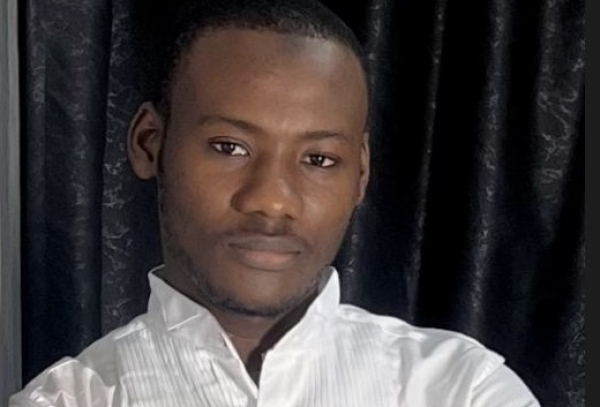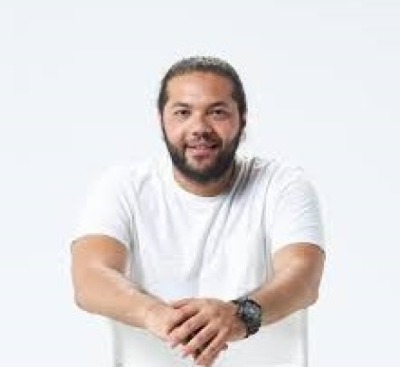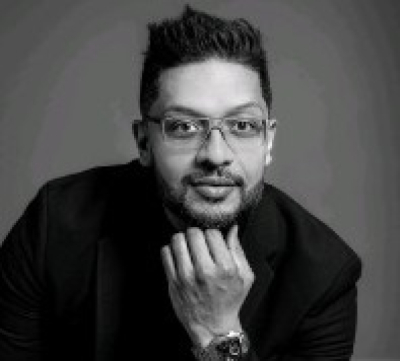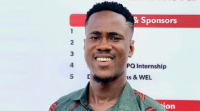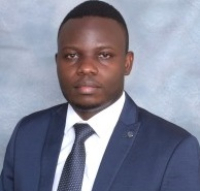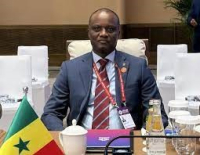Driven by his experience building companies in various sectors, the entrepreneur is now helping Ivorian creators develop their ideas. His goal is to build and support initiatives that generate lasting economic and social value.
Amidou Diarra, an Ivorian entrepreneur with ventures in e-commerce, agriculture, education, and advertising, is leveraging his experience to assist emerging business owners through his company, C'possible.
Founded in 2023, C'possible is an entrepreneurial support platform that offers a combination of mentoring, practical workshops, methodological resources, and digital tools. The company's goal is to help develop and implement new business projects.
The platform focuses on rapid action and business structuring. It guides project leaders through key stages, including idea validation, business model development, legal formalization, financial management, and marketing strategy. By providing a clear and accessible framework, C'possible aims to reduce the common barriers to launching a new business.
In addition to its direct support, C'possible is cultivating a community for entrepreneurs. The platform fosters networking and the sharing of experiences, bringing together seasoned experts and new creators to strengthen the French-speaking entrepreneurial ecosystem in Africa.
Diarra is also a co-founder of Monrezo, a platform launched in 2024. Monrezo connects individuals, professionals, and entrepreneurs seeking advice on business, career, or personal matters with African experts and public figures.
Before these projects, Diarra co-founded Diago in 2022. Diago is a digital platform that links informal retailers with supply opportunities and financial services. He served as the company's CEO until 2023, when it was acquired by Chari.co, a Moroccan e-commerce and financial services company.
A graduate in marketing and communication with certifications in coaching and personal development, Diarra began his career in 2016 at Orange Côte d'Ivoire as a press review officer. In 2018, he joined the energy company Total Côte d'Ivoire, where he worked as a gas station manager.
Melchior Koba
• Super apps centralize services, boosting digital access in Africa
• Platforms like M-Pesa and Gozem drive regional adoption
• Infrastructure, regulation, and trust remain major challenges
A new generation of all-in-one applications, known as "super apps," is emerging in Africa, capable of managing a wide range of services from a single smartphone. Modeled on successful Asian platforms like WeChat and Grab, these apps integrate messaging, payments, transport, e-commerce, and even health services, providing centralized access to multiple functions. On a continent where a mobile phone is often the first point of entry to the digital world, super apps are positioning themselves as a strategic lever for accelerating digital transformation.
The super app model holds particular promise for Africa. The GSMA projects that the continent will have more than 1.1 billion mobile subscribers by 2028, even with limited physical infrastructure and banking access. By centralizing services into one application, these platforms address tangible needs for both urban and rural populations while promoting financial inclusion.
Market Leaders and Growth Drivers
Several companies are already competing in this market. M-Pesa, launched by Safaricom in Kenya, is a prominent example. Initially a money transfer service, it has evolved into a multifunctional platform that includes merchant payments, microcredit, and insurance. In West Africa, Gozem, often called "Africa’s Gojek," combines transport, delivery, mobile money, and financial services, with a strong presence in Togo and Benin. In East Africa, SafeBoda offers a similar model, ranging from motorcycle taxi booking to digital payments. Telecom operators are also developing their own ecosystems, such as Orange's Max It app, which offers mobile payments via its Orange Money service, as well as phone credit purchases, streaming television, and online shopping.
Super apps represent more than just a technical innovation. They contribute to digital and financial inclusion by reducing dependence on cash, democratizing access to services once reserved for those with bank accounts, and providing a digital storefront for small businesses. Artisans, traders, and informal entrepreneurs can reach new customers, accept electronic payments, and apply for micro-loans. These apps could also become growth engines by integrating services related to education, health, or agriculture.
Persistent Challenges
While the potential is immense, significant obstacles remain. Developing a super app requires massive investment in digital infrastructure and cybersecurity. The regulatory frameworks, which are often fragile regarding personal data management and consumer protection, present another barrier. Furthermore, a shortage of specialized skills slows the design and maintenance of these complex ecosystems. Finally, user trust remains a critical issue, as many people are still wary of digital services.
Africa does not need to simply copy the Asian model; it can create its own solutions adapted to local economic and social realities. For example, super apps could integrate cross-border payments to support the African Continental Free Trade Area or use artificial intelligence to optimize agricultural services and expand access to health and education via mobile devices. If these challenges are overcome, super apps could become a pillar of the continent's economic competitiveness by combining technological innovation, financial inclusion, and sustainable development.
Samira Njoya
• Tunisia to launch Najda platform for heart attack response
• System links ambulances, hospitals, specialists in real time
• Part of broader health digitization with international partners
Tunisia's Ministry of Health is set to roll out the digital platform Najda nationwide to detect heart attacks and trigger an immediate medical response. The initiative follows a successful pilot phase, with the platform set to become a national rapid-response tool for cardiac emergencies, according to a ministry statement on its Facebook page on Tuesday, August 12.
The ministry will equip all cardiology and emergency departments, along with SAMU ambulance services, with advanced digital equipment. The initiative includes training medical teams on the use of the new technology, in partnership with the Tunisian Society of Cardiology and the National Accreditation Authority.
Najda connects emergency services, cardiology units, and ambulances in real time. When a suspected case is reported, patient clinical data is transmitted instantly to specialists, who can guide treatment even before the patient arrives at the hospital. This reduces critical time delays, increasing the chances of survival and limiting irreversible cardiac damage.
The deployment of Najda is part of a broader health system modernization program. Tunisian authorities have established strategic partnerships, including with South Korea, to strengthen digital health capabilities. A new telemedicine center was inaugurated last week, allowing residents of inland regions to avoid long journeys for certain medical examinations.
The nationwide rollout also aims to standardize emergency protocols and improve coordination among medical facilities. Beyond the anticipated reduction in heart attack mortality, the project represents a significant step toward modernizing Tunisia's healthcare system. The experience could also serve as a model for integrating other critical emergencies, such as strokes or respiratory distress, into a unified digital network.
Adoni Conrad Quenum
After earning a degree in biomedical engineering, he founded several tech companies across different sectors, including media. Through his latest venture, he is pioneering innovations in digital logistics and supply chain transformation.
Mostafa Amin is an Egyptian entrepreneur and the co-founder and CEO of Breadfast, an online platform specializing in the delivery of groceries and household goods.
Founded in 2017, Breadfast operates a vertically integrated supply chain for fresh and baked goods, as well as household items. The company serves Cairo, Giza, and Alexandria, with plans to expand across Egypt and the broader Middle East and North Africa (MENA) region. By operating its own bakeries and fulfillment centers, Breadfast maintains control over its production and distribution, ensuring product freshness and fast delivery.
In addition to his work with Breadfast, Amin co-founded Egyptian Streets in 2012. The independent English-language media company focuses on cultural, economic, social, and travel stories to showcase a different side of Egypt.
Before launching Breadfast, Amin co-founded Wassel in 2016, a networking platform for businesses, investors, and individuals in the MENA region. He holds a bachelor’s degree in biomedical engineering from Egypt’s Higher Technological Institute, which he earned in 2012.
Amin's professional career began in 2013, when he joined Canadian technology and content company Thomson Reuters as a communications and marketing officer. The following year, he became chief operating officer at Speakol, a content discovery and native advertising network. From 2016 to 2017, he worked as a product advisor for COOING, a digital real estate platform.
Melchior Koba
The initiative represents a linchpin in the nation’s journey to a modern, resilient, and inclusive digital government. With AI skills, officials could automate repetitive tasks, draw insights from complex datasets, and craft more responsive policies.
Kenya is gearing up to overhaul government operations with AI, aiming to equip 100,000 public servants with the skills to make it happen. The initiative was formally set in motion at the first Project Implementation Board meeting of the Regional Centre of Competence (RCOC) for Digital and AI Skilling held on August 11. The meeting was co-chaired by the Ministry of Public Service and the United Nations Development Programme (UNDP).
For the Principal Secretary for ICT and Digital Economy, Eng. John Kipchumba Tanui, “With these steps, Kenya is firmly positioning itself as a continental hub for AI excellence — boosting efficiency, decision-making, and inclusive governance.” This vision is supported by a deepening partnership among the government, UNDP, Microsoft, and other collaborators, who will provide curriculum expertise, technology access, and research support to ensure the training is both practical and forward-looking.
The RCOC, based at the Kenya School of Government, will serve not just as a national training hub but as a continental blueprint for AI capacity building, with Kenya pledging to share its model and resources with 37 African nations. At the meeting, government leaders, development partners and tech experts endorsed the Project Board and approved an implementation plan that sets the stage for AI integration into public service delivery.
A core element of the plan is the commitment to train 100,000 civil servants in AI applications, starting with an initial cohort of 10,000 selected through transparent, merit-based criteria. Already, two-thirds of this first group are ready to begin training. The programme will integrate AI tools directly into public workflows, spanning policymaking, service delivery, and data management, enabling faster decision-making and more inclusive governance.
Public service upskilling is especially urgent. Digital transformation initiatives like the Digital Masterplan 2022–2032 aim to digitize 80% of government services, connect 100,000 km of fibre, and roll out nationwide public Wi-Fi. Yet these systems can only achieve their full potential if managed by officials who understand, adapt, and innovate with new technologies.
AI can speed up service delivery, strengthen data-driven decision-making, and make government operations more transparent and efficient. And with training rolled out in partnership with UNDP and Microsoft, public servants will gain access to globally benchmarked curricula, tools, and research networks.
If successful, the programme could serve as a model for other African nations, helping bridge the continent’s digital skills gap while enabling governments to lead in AI adoption rather than lag behind it.
Hikmatu Bilali
He has made the digitization of supply chains his main area of innovation, offering concrete solutions to rethink industry practices. He combines technology and efficiency to improve supplier relationships.
South African entrepreneur Clive Govender specializes in management consulting, supply chain, and digital transformation. He is the founder and CEO of Adapt Digital Solutions, a technology firm based in South Africa.
Founded in 2020, Adapt Digital Solutions develops digital solutions to help companies improve supplier diversity, reduce supplier-related risks, and optimize operational costs within their supply chains.
A key achievement for the company is the Mining Enterprise and Supplier Development (ESD) Platform, developed in collaboration with Accenture. Launched in 2022, this cloud-based platform supports South Africa’s mining industry by managing the complete lifecycle of local supplier development. Its features include company registration, verification, technical and financial support, and transparent publication of sourcing opportunities.
In addition to his work at Adapt Digital Solutions, Govender is also the founder and managing director of CGC Consulting, a firm he established in 2016. CGC Consulting focuses on transforming procurement processes and structures to help clients improve logistical efficiency. The company offers comprehensive procurement and supply chain management solutions aimed at generating tangible value for businesses.
Govender holds a bachelor's degree in economics and business management from the University of South Africa, a bachelor's in operations management from the University of Hertfordshire in England, and a master's degree in business strategy from Henley Business School.
His professional career began in 1995 as a quality manager at ABB, a role he held until 1997. He returned to the company in 2000 as a business process general manager before being promoted to vice president of supply chain management and sustainable development in 2001. Between 2006 and 2016, he served as head of procurement and supply chain for Anglo American Platinum, a global mining company with operations in South Africa.
Melchior Koba
As digitalization takes hold in Africa, it's simplifying daily life in a variety of sectors. The Ghanaian entrepreneur is now using this shift to develop a digital platform for the wellness industry, aiming to make beauty services more widely available.
Ghanaian entrepreneur Nunya Tomey is bringing the beauty and wellness industry online with his digital platform, TWiST Beauty.
Launched in 2023, TWiST Beauty is a mobile application designed to connect clients with beauty professionals. It allows users to search for and book appointments for a range of services, including hairstyling, makeup, and skincare. The platform offers the flexibility of in-salon or at-home appointments, based on user preference.
For professionals, the app features a central dashboard to manage schedules, track performance, and run promotional offers. It also includes a loyalty program, TWiST Coins, to reward regular clients.
Tomey, who serves as the company's founder and CEO, also launched a separate service in 2024 called KOJE Delivery. This platform facilitates low-cost package shipping through a collaborative model where travelers can earn money by delivering parcels.
Tomey's career began in 2017 as a graphic designer for Reach for Change, a nonprofit organization supporting social entrepreneurs. He holds a bachelor's degree in computer science from the University of Ghana, earned in 2020, and a master's in entrepreneurship from MEST Africa, completed in 2024. He previously worked as a product designer for Webbermill, an application publisher, from 2020 to 2022, and as the head of marketing and sales for Detosphere, a technology firm, in 2023.
Melchior Koba
Africa’s Urban Population Is Growing Rapidly, Straining Infrastructure and Services. Smart cities are emerging as an innovative solution to better manage energy, mobility, and the environment, while promoting inclusion.
Smart cities are emerging as a strategic solution to manage Africa's rapid urbanization, a demographic shift putting immense pressure on the continent's infrastructure and public services.
According to the United Nations, nearly 60% of Africa’s population will live in urban areas by 2050, up from about 43% today. This accelerated population growth is profoundly transforming urban landscapes and straining mobility, resource management, and public services. In response, a number of nations are embracing the smart city concept.

These projects integrate advanced technologies like the Internet of Things, artificial intelligence, data platforms, and Geographic Information Systems. The goal is to optimize public services, improve mobility, monitor the environment, and promote social inclusion. Ultimately, a smart city aims to combine technological innovation, sustainable development, and citizen participation to create a more efficient, attractive, and resilient living environment.
Concrete Projects Emerge Across the Continent
Several African nations are advancing with smart city initiatives. Kenya is developing Konza Technopolis, a hub that integrates businesses, universities, and innovation centers. In Senegal, the city of Diamniadio aims to decongest the capital of Dakar by creating a modern city with administrative, industrial, and residential zones. Morocco is focusing on the intelligent management of water networks, public lighting, and traffic in several cities. Meanwhile, an ambitious project in Tunisia plans for the continent's first smart automotive city, a hub that could generate up to 100,000 jobs by combining industrial production, technological innovation, and sustainable urban planning.
These initiatives are part of a global market poised for rapid growth. Fortune Business Insights estimates that the global smart cities market, valued at $623.9 billion in 2023, is projected to reach $4.65 trillion by 2032, with a compound annual growth rate of 25.2%. While North America currently leads the market with a 40.87% share, Africa has immense potential to catch up due to its favorable demographics and the significant room for improvement in its infrastructure.
Challenges and Outlook
Despite the potential, the implementation of smart cities in Africa faces significant hurdles. The high costs of design, construction, and maintenance are a major challenge, compounded by a scarcity of suitable financing. Regulatory frameworks, particularly for data protection and cybersecurity, are often insufficient. Furthermore, a shortage of skilled labor limits countries' ability to design and manage these complex systems. Social acceptance is also a key factor, as citizen engagement is essential for a project's success. Finally, Africa must ensure that these technologies do not widen the digital divide, benefiting only affluent neighborhoods at the expense of disadvantaged areas.
If these obstacles can be overcome, the benefits for the continent could be substantial. Smart cities could lead to accelerated infrastructure modernization, optimized urban management, reduced operational costs for local authorities, large-scale creation of skilled jobs, and a notable improvement in quality of life. These cities have the potential to become regional engines of competitiveness while contributing to the Sustainable Development Goals, providing Africa with a crucial lever for its urban and economic future.
Samira Njoya
As a trained accountant, he chose to address Uganda's unique financial challenges by integrating digital solutions into often-overlooked sectors.
Joseph Lukula, a Ugandan entrepreneur and financial inclusion advocate, is leveraging his background in accounting to address the country's unique financial challenges. He is the co-founder and CEO of Nexen Tech, a company that develops advanced technological solutions for the financial sector.
Launched in 2022, Nexen Tech offers a cloud-based platform that automates core banking operations. The solution uses artificial intelligence to analyze data and flag operational efficiencies and inefficiencies. The platform simplifies the management of savings and credit cooperatives by streamlining member, loan, deposit, and transaction management while ensuring regulatory compliance and strengthening their ability to serve underbanked populations.
Lukula is also the co-founder and CEO of Nexen Micro Credit, a microfinance institution he established in 2016. Through its digital platform, the institution provides working loans to hundreds of low-income small businesses, primarily in Uganda.
Lukula earned a bachelor's degree in business management and administration from Uganda Martyrs University in 2011 and a master's in accounting and finance from Coventry University in England in 2014. His career began in 2012 as a banking officer at GTBank. In 2015, he joined Premier Credit, a Kenyan microfinance company, as an accountant. Premier Credit provides financial solutions to businesses, government entities, and individual entrepreneurs.
Melchior Koba
Despite his training in accounting, he chose to build a career in the music and film industries. He now leverages digital tools to bring African film productions to a global audience.
Modou Lolly Sarr, a Senegalese sound technician, entrepreneur, and self-taught developer, is the founder and CEO of Wawaw, a new digital platform designed to promote local cinema.
Launched in 2024, Wawaw has emerged as a key player in the African film industry. The platform offers a wide range of African and international streaming content, making cinema more accessible to local audiences by providing features such as subtitles and dubbing in local languages, including Wolof.
Beyond its streaming services, Wawaw provides professional tools for filmmakers, offering solutions to help manage film production, booking, and modernization processes. This approach is intended to help the industry overcome key challenges.
“Our mission is to create an integrated platform for streaming, booking, and film project management, aimed at promoting local cinema, facilitating access to film resources, and modernizing production processes,” Sarr said in a statement.
Sarr is also the managing director and a sound engineer at WordSharp Music, a music production studio he founded in 2014. Before launching Wawaw, he co-founded Cyan Senegal, a marketing and communications agency, in 2019.
Melchior Koba
More...
Digitizing civil registration systems empowers citizens with legal identity, improves access to rights and services, enables inclusive planning, and unlocks measurable economic and social gains.
Somalia has taken a major step forward in its digital transformation journey with the rollout of a Unified Digital Civil Registration Service in 19 districts across the country. The announcement was made by the Ministry of Interior, Federal Affairs and Reconciliation during the commemoration of the 8th Africa Civil Registration and Vital Statistics (CRVS) Day on August 10. The initiative aligns with the annual AU-backed commemoration established in 2018 to highlight the importance of robust CRVS systems and rally support for ensuring every citizen is officially recorded.
The new platform enables local administrations in Federal Member States—including Jubbaland, South West, Hirshabelle, Galmudug, and Northeastern State—to digitally register births, marriages, divorces, and deaths. All records are stored in a centralized national database, ensuring that citizens’ legal identities are secure, accessible, and tamper-proof.
Officials say the system will significantly reduce administrative bottlenecks, cut costs associated with paper-based records, and improve the speed and accuracy of service delivery. The Ministry is already working to integrate the platform with other government services such as health, education, national ID, and immigration—laying the groundwork for a fully interconnected e-government ecosystem.
According to UNICEF, as part of the digital CRVS pilot, 19 districts were equipped with modern registration tools, including tablets for health facilities without computers. The Federal Ministry of Education has also committed to mainstreaming CRVS into the school enrolment process—starting with primary-age children who have missed out on registration—ensuring that digital identity begins at the earliest stages of life.
Reliable civil registration is the backbone of effective governance and inclusive digital transformation. According to the 2020 Somalia Demographic and Health Survey, only 3% of children under five have had their births officially registered, and a mere 0.3% hold a birth certificate, one of the lowest rates globally. This leaves millions without legal identity, limiting access to education, healthcare, voting rights, and social protection programs.
By expanding access to official documentation, the digital registry is expected to boost citizen participation in public life, facilitate access to social services, and strengthen national planning through reliable population data. Plans are in place to scale the service to every district, including remote and underserved areas.
The move aligns with the African Union’s push for legal identity as the cornerstone of digital governance, and comes as Somalia seeks to modernize public administration, enhance transparency, and close the gap in civil registration coverage.
Hikmatu Bilali
His career, which blends technical expertise with an entrepreneurial mindset, is a prime example of Africa's emerging tech sector. This industry is proving its ability to innovate in key areas like customer service, digital services, and automation, all while creating significant value for the continent's development.
Mohamed Elmasry is an Egyptian engineer and entrepreneur who co-founded and serves as CEO of Tactful, a technology company specializing in customer experience optimization. Founded in 2016 by Mohamed Elmasry, Mohammed Hassan, and Sherif Khairallah, Tactful is headquartered in the United Kingdom with development centers in Cairo and Cambridge. The company's solution enhances customer service by integrating all digital and voice channels into a single tool.
Tactful's platform allows businesses to track customer interactions in real time via a unified dashboard that combines social media, live chat, email, and telephony. Advanced technologies, including no-code automation, an AI-based intelligent routing engine, and multilingual chatbots, enable companies to efficiently handle repetitive requests. This boosts team productivity while optimizing customer satisfaction.
Before Tactful, Elmasry had several entrepreneurial ventures. In 2003, he founded Luxor Instruments, an Egyptian company that developed internet solutions, and served as its technical director for three years. He co-founded Silicon Vision, an intellectual property company for radio frequency technologies, in 2012, where he was head of design until 2014. The following year, he founded Boost Valley Consulting Services, a digital design and verification company, where he led engineering until 2016.
Elmasry holds a bachelor’s degree in electrical, electronic, and communications engineering from Minia University in Egypt, and a diploma in management and business administration from Cambridge Judge Business School. In 2004, he was hired by Telecom Egypt as a network design engineer. He joined the research and development company ComSpots in 2006 as a founding employee and head of design. From 2022 to 2024, he was a partner at Dstny Group, a European provider of business communications solutions.
Melchior Koba
-
Senegal and BOAD discussed using the Digital Transformation Fund to modernize public services.
-
Fund would back projects under Senegal’s $1.7 billion Technological New Deal.
-
Plan faces a 155 billion CFA franc funding gap.
Senegal’s Minister of Communication, Telecommunications, and the Digital Economy, Alioune Sall, met with a delegation from the West African Development Bank (BOAD) on Thursday, August 7. The meeting focused on strengthening Senegal's digital sovereignty and improving the efficiency of public services through a new partnership.
Discussions centered on the Digital Transformation Fund (FTD), an innovative financing mechanism backed by BOAD and the German bank KfW. The fund aims to support high-impact digital projects that can modernize the country's information systems and public services.
The two parties identified potential synergies between the FTD’s financing and the priority projects outlined in Senegal's national digital strategy, the Technological New Deal. BOAD reaffirmed its commitment to supporting Senegal's digital transformation and strengthening its administration through strategic partnerships.
If the collaboration moves forward, BOAD could finance critical infrastructure and public service digitization projects, helping to create a more dynamic digital ecosystem. This support would allow Senegal to accelerate its Technological New Deal objectives, while also boosting its digital sovereignty and economic competitiveness.
The Technological New Deal has an overall budget of 1,105 billion CFA francs ($1.7 billion). Of that amount, 950 billion CFA francs have been identified, including 150 billion from private financing and 800 billion from the "Vision 2050" transformation agenda. This leaves a shortfall of 155 billion CFA francs to be mobilized to fully achieve the plan's objectives.
Samira Njoya
Her vision for connected health, which combines technology and care, aims to solve Africa's healthcare access challenges. Her background makes her a key figure in the transformation of the continent's healthcare sector.
Zanele Abraham Matome, a South African entrepreneur, is the CEO of Welo Health, a health technology startup founded in 2020. The company aims to improve healthcare access by combining digital innovation with a human approach.
Welo Health provides a digital platform that connects companies, health insurers, and individuals with qualified medical professionals. These professionals, including doctors, nurses, and specialists, offer in-home or remote consultations. The startup also implements workplace wellness programs to combat absenteeism and boost productivity.
The company's services include preventive medicine, medication delivery, rapid interventions, telemedicine, occupational health management, health risk assessments, and personalized support.
"Our dynamic platform connects corporate clients with top-tier healthcare professionals, ensuring immediate access to quality care," Matome explained. "In the simplest terms, Welo is a subscription-based B2B service. We collaborate with corporates and healthcare providers to offer health services to employees, paid for by the employers."
Matome also serves as an entrepreneurship ambassador for The StartUp Tribe, an initiative launched in 2020 to help 10 million young people begin their entrepreneurial journeys. In 2023, her company was featured in the Africa Health Tech 50 ranking, which highlights the most promising healthcare startups in sub-Saharan Africa.
Melchior Koba


